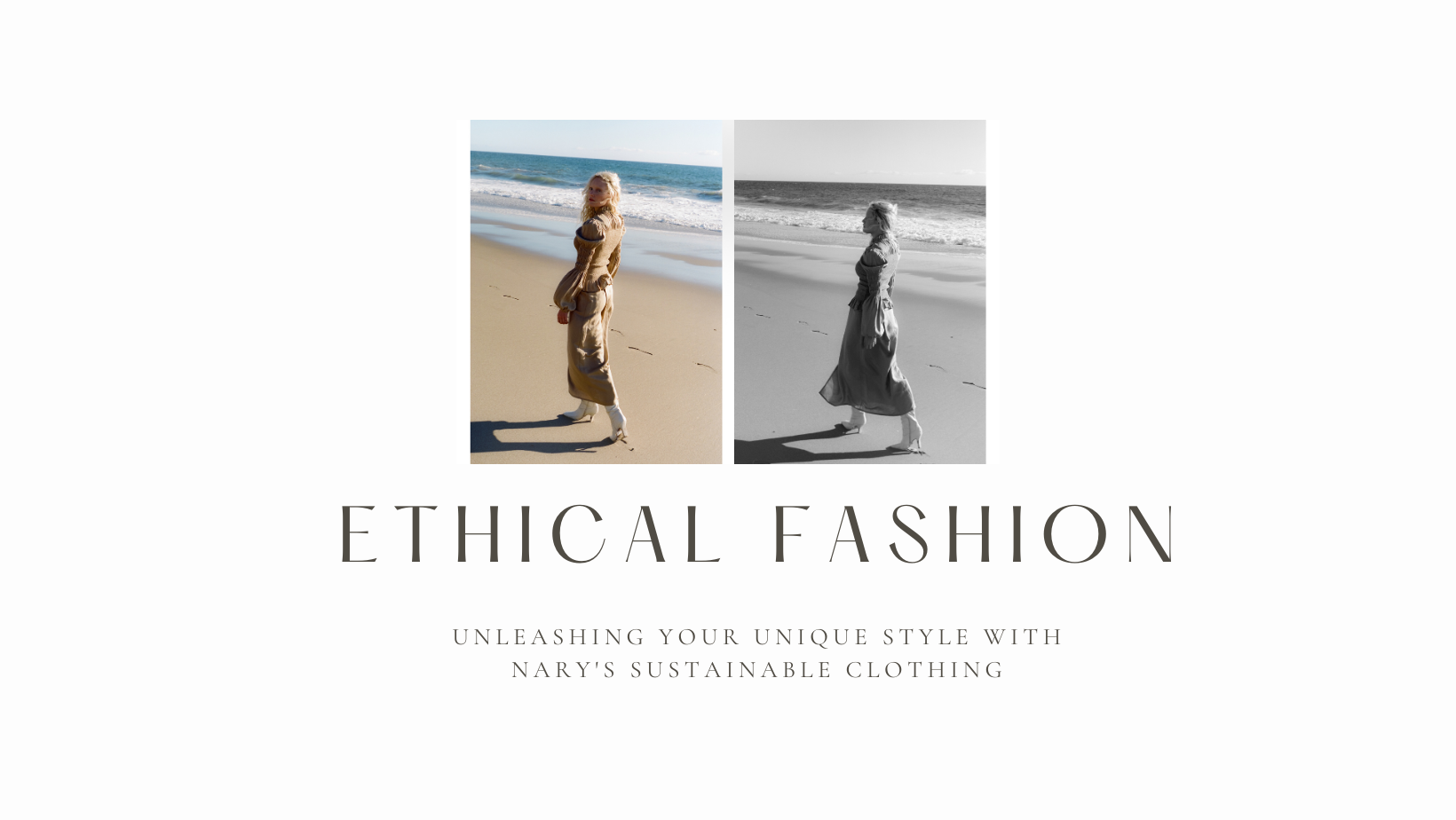Article: Ethical Fashion: Unleashing Your Unique Style with NARY's Sustainable Clothing

Ethical Fashion: Unleashing Your Unique Style with NARY's Sustainable Clothing
Fashion is a powerful means of self-expression, allowing us to showcase our identity, personality, and emotions through clothing choices. However, the fashion industry's significant environmental impact cannot be ignored, with fast fashion giants like Shein, H&M, Forever21, and Zara contributing substantially to textile waste. In 2023, TheRoundup reported a staggering 92 million tons of textile waste generated annually. As we uphold our love for fashion, we must also support the planet and garment workers. Embracing conscious consumerism and understanding the importance of ethical and sustainable fashion practices will help us make informed and responsible choices in our purchases.

Sustainable Fashion Brands and Eco-Friendly Choices
Conscious consumerism is the approach to shopping that considers the ethical, social, and environmental impact of each purchase decision. Change starts with the consumer, by making conscious purchases we can drive industries to adopt more sustainable and ethical practices.
In 2023, we see an influx of companies rolling out their “sustainable collection”. However, don't be fooled, it is all greenwashing and strategic marketing. Greenwashing is a marketing tactic used to mislead consumers into thinking they are purchasing items that are more eco-friendly than they really are. A prime example is H&M’s “Let’s close the loop” campaign, implemented in 2013. Consumers are encouraged to donate their clothing to the recycling boxes located in their stores in exchange for a discount on their next purchase. The donations are then categorized into three categories: Reware, Reuse, and Recycle. The item deemed wearable would be donated, otherwise, they will be turned into another product. Despite sounding promising in theory, in 2023, The Swedish daily Aftonbladet conducted an investigation by geotagging donated clothing and revealed that a significant portion of these items ended up in landfills in the Global South. While H&M may introduce "new" eco-friendly strategies, the reality remains that a multibillion-dollar fast fashion corporation, reliant on mass production and consumerism, can never truly achieve sustainability. Low prices often come at the cost of labor rights exploitation, making it challenging for fast fashion to be genuinely ethical.

Embracing Ethical Fashion and Curating Your Personal Style
To make responsible choices, research the brands you support and evaluate their ethical practices, values, and contributions to society. Understanding these aspects empowers us to make responsible decisions. At NARY, we take pride in sourcing linen and cotton deadstock fabric leftover from fast fashion companies. These sustainable materials are biodegradable, aligning with our commitment to eco-friendly fashion. Based in Phnom Penh, Cambodia, NARY collaborates with NGO sewing centers and ethical sewing centers, ensuring fair and livable wages for employees. As a certified Freedom Business Alliance member, NARY provides employment opportunities for survivors of human trafficking or those at risk, breaking the cycle of poverty.
As we reflect on the impact of fashion on workers and the environment, it's clear that ethical fashion and the circular economy are integral to building a brighter future. Ethical fashion and social responsibility go hand in hand, shaping the fashion industry's transformation. Embracing sustainable fashion for the future means considering not only our personal style but also our responsibility to the planet and its people. Together, through conscious choices, we can shape a fashion world that is both stylish and ethical.
source: theRoundUp & courthousenews



Leave a comment
This site is protected by hCaptcha and the hCaptcha Privacy Policy and Terms of Service apply.